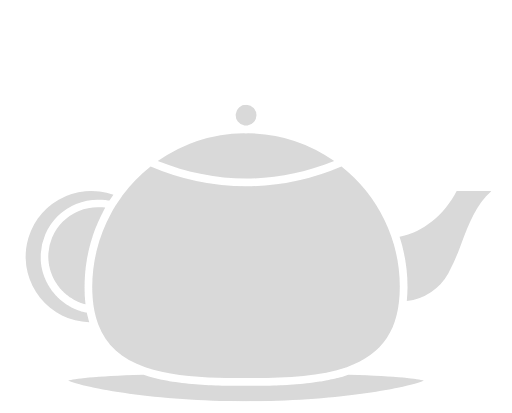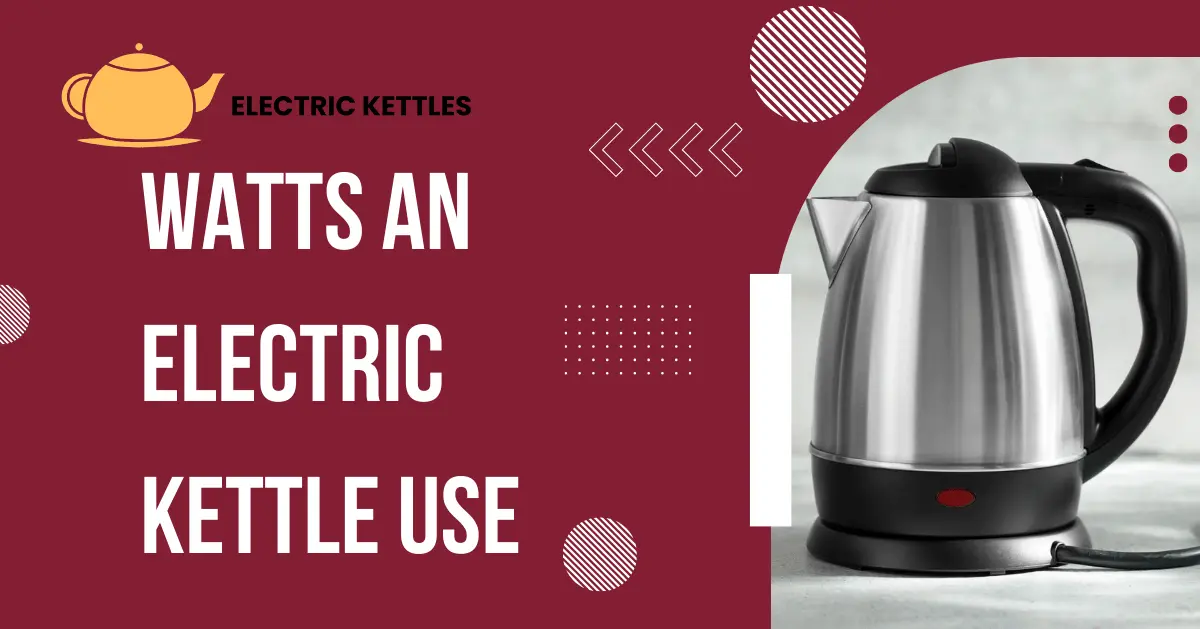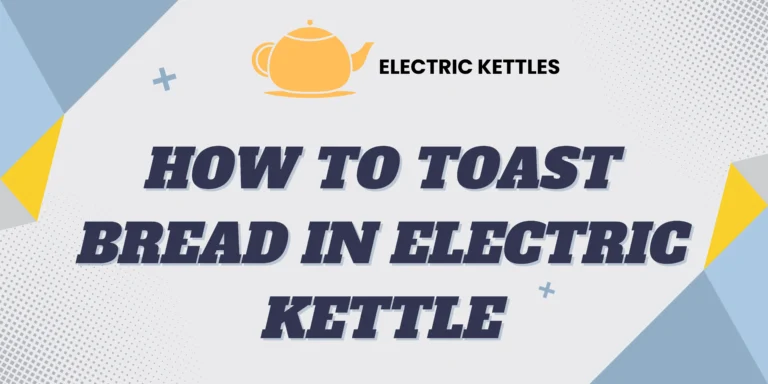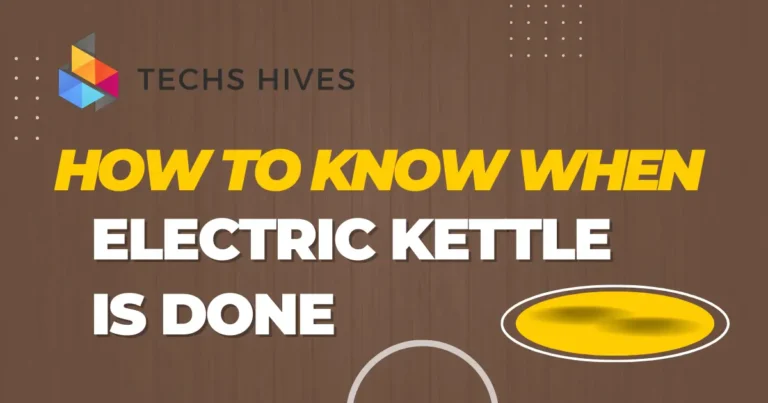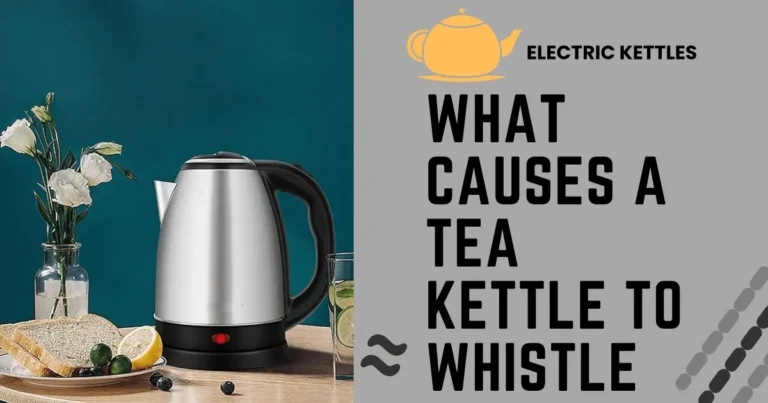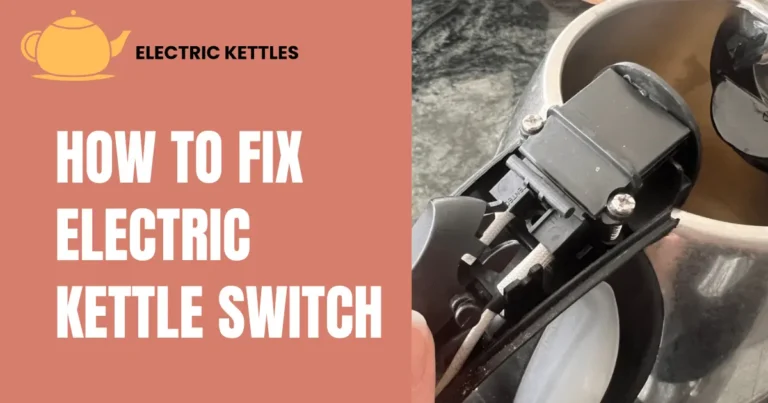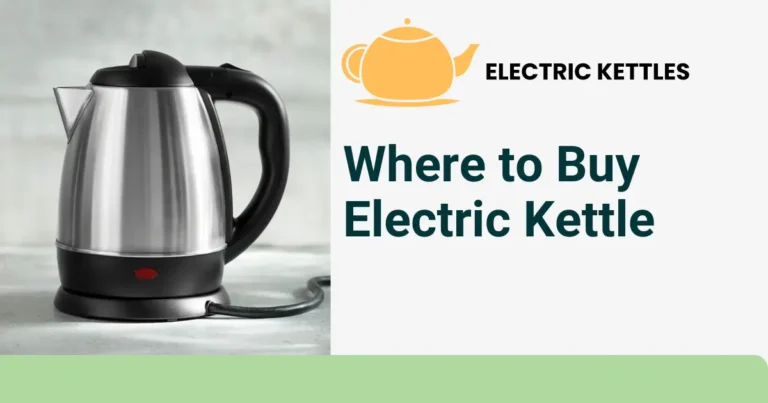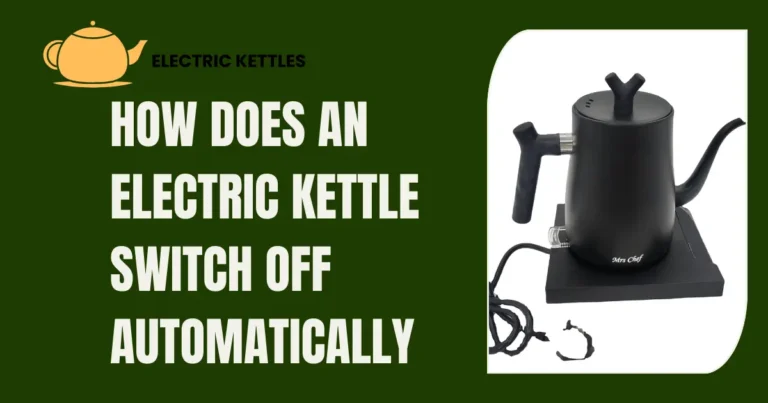How Many Watts Does an Electric Kettle Use
An electric kettle is a device used to quickly boil water. It heats water using electricity rather than a stove. The kettle has a heating element inside that turns electrical energy into heat. This heat boils the water quickly, making it convenient for various uses like making tea or coffee.
Wattage is important because it affects how fast the kettle boils water. Higher wattage means the kettle heats water faster. For example, a kettle with 1500 watts boils water quicker than one with 1000 watts. Choosing the right wattage helps you get hot water more efficiently. It also impacts how much electricity the kettle uses.
Table of Contents
Average Watts of Electric Kettles
Electric kettles usually have wattages between 1000 and 3000 watts. Most common kettles fall in the 1500 to 1800-watt range. This range is typical for quick boiling. A kettle with 1500 watts takes about 4 to 5 minutes to boil water, which is efficient for everyday use.
Kettles with higher wattages, like 2200 to 3000 watts, heat water faster. They can boil water in about 2 to 3 minutes. While they work quickly, they also use more electricity. Choosing the right wattage depends on how fast you need your water and how much energy you want to use. Higher wattage kettles are great for fast results but may cost more to run.
Factors Influencing Watts
Several factors influence the wattage of an electric kettle. The size and capacity of the kettle are significant. Larger kettles, which hold more water, often have higher wattages to heat the water quickly. A bigger kettle needs more power to bring a large volume of water to a boil in a reasonable time.
1. Size and Capacity
The size of the kettle impacts its wattage requirements. Larger kettles, which hold more water, typically need higher wattage to heat the water efficiently. For instance, a kettle with a 1-liter capacity might use around 1500 watts, while a 1.7-liter kettle could require up to 2200 watts to achieve the same heating speed. This extra power helps ensure that the larger volume of water reaches boiling quickly.
2. Heating Element Design
The design of the heating element affects how much wattage is needed. Advanced heating elements, such as those with rapid-boil technology or concealed designs, can improve efficiency. These elements heat water faster and often require higher wattage. A well-engineered element can reduce boiling time and enhance overall performance.
3. Additional Features
Kettles with additional features may have higher wattages. Functions like temperature control, keep-warm settings, or rapid-boil options can increase power usage. For example, a kettle with a variable temperature setting might need more wattage to maintain different heat levels. These features add convenience but also contribute to the overall power consumption.
4. Efficiency and Performance
Wattage directly impacts efficiency and performance. Higher wattage kettles generally boil water more quickly and can be more energy-efficient if you frequently need hot water in a hurry. They heat water faster, reducing waiting time and potentially saving energy in the long run. Choosing the right wattage involves balancing the need for speed with energy use. You can also read the use of Electric Kettles.
Energy Consumption and Efficiency
Higher wattage kettles offer quicker boiling times, they also increase energy consumption. Choosing a kettle with the right wattage for your needs can help manage both efficiency and electricity costs.
Energy Consumption
Energy consumption of an electric kettle depends on its wattage. Higher wattage kettles use more electricity to boil water. For example, a 1500-watt kettle consumes 1.5 kilowatt-hours (kWh) of energy if it runs for one hour. A 2200-watt kettle, on the other hand, uses 2.2 kWh for the same time. Higher wattage means faster boiling, but it also means higher energy use.
Efficiency in Boiling
Efficiency relates to how effectively a kettle converts electrical energy into heat. Higher wattage kettles often have faster boiling times, which can be more efficient if you need hot water quickly. They reach boiling point faster, so they use energy for a shorter time. This can be beneficial for quick and frequent use.
Reducing Energy Use
To reduce energy consumption, consider using a kettle with appropriate wattage for your needs. If you only need to boil small amounts of water, a lower wattage kettle might be sufficient. Additionally, using the kettle’s automatic shut-off feature can help prevent unnecessary energy use.
Choosing the Right Watts
Choosing the right wattage depends on how you plan to use your kettle. If you frequently boil large amounts of water, a higher wattage kettle is ideal. Higher wattage models, such as those with 2200 to 3000 watts, boil water faster, which is useful for busy households. For occasional use or smaller quantities, a kettle with 1500 to 1800 watts should suffice.
Boiling Speed
Boiling speed is influenced by wattage. Higher wattage kettles heat water more quickly. If time is important, and you want hot water fast, opt for a kettle with a higher wattage. This can be especially beneficial if you often need boiling water for drinks or cooking.
Balance Energy Use
While higher wattage provides faster boiling, it also consumes more electricity. Consider how often you use the kettle and whether the speed of boiling justifies the extra energy cost. For infrequent use, a lower wattage kettle can be more energy-efficient and cost-effective.
FAQs
Q1. Do electric kettles with the same wattage boil water at the same speed?
Not always. Even if kettles have the same wattage, differences in design and heating elements can affect boiling speed.
Q2. Can I use a higher wattage kettle in a standard electrical outlet?
Yes, most home outlets can handle a range of wattages. Just make sure your outlet and wiring are in good condition and follow safety guidelines.
Q3. Does the material of the kettle affect its wattage?
No, the material of the kettle (like stainless steel or plastic) does not affect its wattage. Wattage is determined by the heating element and power settings.
Q4. Are there any safety concerns with high-wattage kettles?
High-wattage kettles are generally safe if used correctly. Ensure your kettle has safety features like automatic shut-off and does not exceed your outlet’s capacity.
Q5. Can I adjust the wattage of my electric kettle?
No, you cannot adjust the wattage of a kettle. The wattage is fixed based on the design and specifications of the heating element.
Conclusion
The wattage of an electric kettle plays a key role in its performance. Most kettles range from 1000 to 3000 watts. Higher wattage means faster boiling times, which can be convenient for busy users. For everyday use, kettles between 1500 and 1800 watts are usually sufficient and efficient.
Choosing the right wattage depends on your needs and energy preferences. If you need hot water quickly and often, a higher wattage kettle may be the best choice. However, for occasional use or smaller amounts of water, a lower wattage model can save energy.
